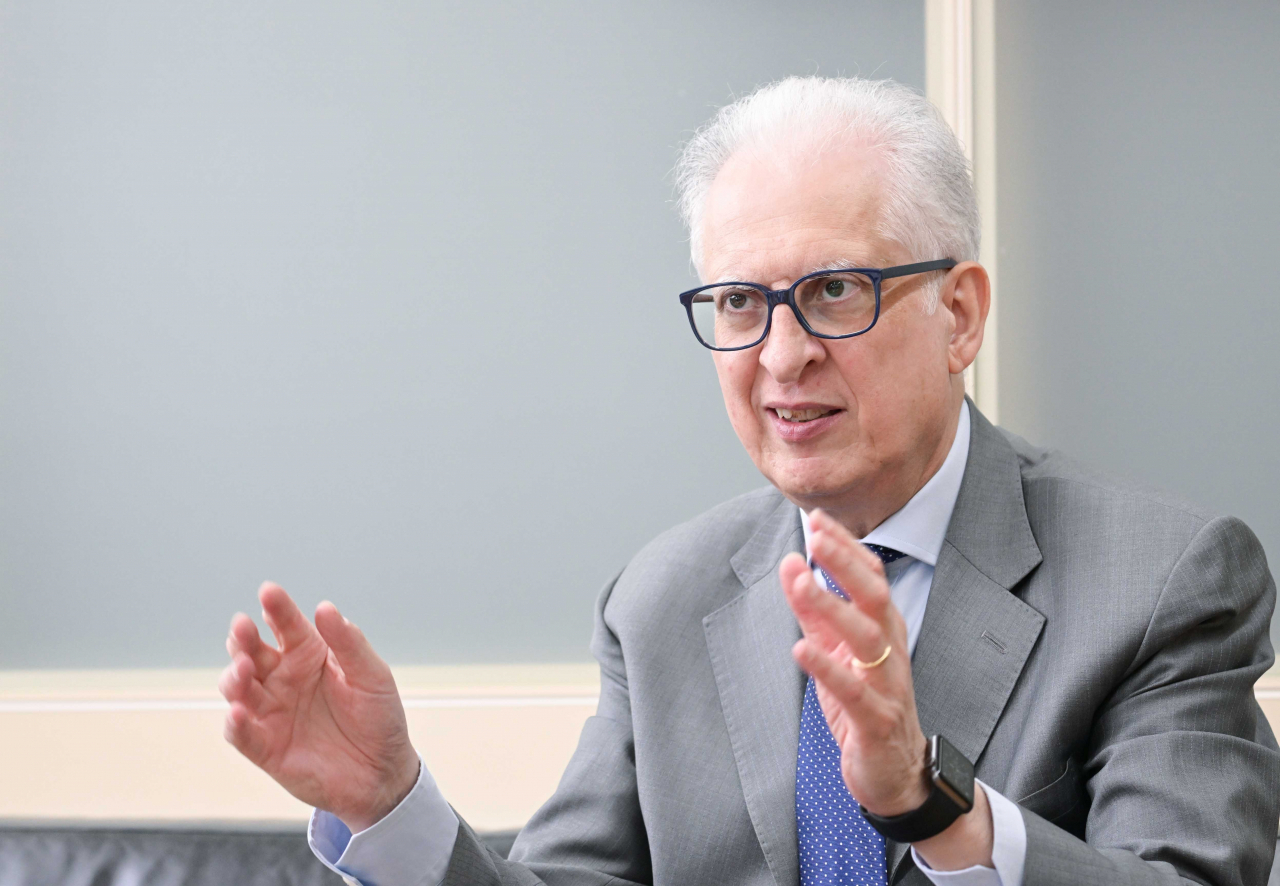 |
Italian Ambassador to South Korea Federico Failla speaks at the Italian Embassy in Yongsan, Seoul. (Lee Sang-sub/The Korea Herald) |
South Korea and Italy should come together for business as well as cultural ties as they prepare to mark 140 years of relations next year, Italian Ambassador to South Korea Federico Failla said in an interview with The Korea Herald on Wednesday.
On the occasion of Republic Day, the annual national holiday that falls on June 2 to celebrate the 1946 transition from monarchy to democracy through a referendum, the envoy stressed bolstering relations in decades to come depends on establishing an “ecosystem” Seoul and Rome could mutually take advantage of as they build on common interests.
“So it’s not only a sector but it’s a set of initiatives that we want to do that can integrate culture, economy, science and technology,” Failla said, singling out the chips, aerospace and pharmaceutical industries as areas to deepen ties in particular.
Last week, South Korea, home to the world’s largest and second-largest memory chip makers, put a satellite into orbit for the first time with a homegrown space rocket in what the Korean leader said was a watershed moment that will change the way the world sees Korea’s space technology and industry. Local drugmaker SK Bioscience this week gained approval from UK authorities for its COVID-19 vaccine.
South Korea and Italy -- two like-minded countries sharing similar values with respect for international rules and norms -- also share ways they run their economies, focusing on delivering final goods rather than intermediary goods, Failla stressed, referring to their similar population size and gross domestic product per capita.
Korea has a population of a little over 50 million, while Italy is a little under 60 million people; GDP per capita for the Asian country was $34,997 whereas the figure for Italy was $35,657 in 2021, according to the World Bank.
College exchange and working holiday programs are just as important to deepen ties, Failla added, saying plans are underway to boost cooperation. Momentum to do so is ever higher, according to the envoy.
“Especially, the young generations are fascinated with Korea due to the soft power of the Korean Wave,” Failla said, referring to a global surge in popularity of Korean cultural products from music to movies. Along with K-pop sensation BTS, Oscar-winning film “Parasite” and megahit Netflix show “Squid Game” are some of the latest global phenomena, because they resonate with a larger international audience, according to Failla.
The Korean language is now the second choice after Chinese for Italians looking to study East Asian languages, the envoy noted, highlighting Korea’s cultural reach in the European country.
The envoy added that Korea and Italy should join forces to meet global challenges such as climate change and another potential pandemic, which would lead to supply chain disruptions as with COVID-19.
“Avoiding all of them is in the best interests of all countries and not just a few,” Failla said of a global coalition leading climate action. Seoul and Rome should contribute to such efforts before it becomes too late to reverse global warming and the extreme weather conditions that come with it, according to the envoy.
Meanwhile, Failla said a humanitarian crisis prompted by Russia’s invasion of Ukraine represents an “absolutely delicate time in international relations” -- a reminder of such values as “democracy, equality, justice and freedom.”
The Italian Embassy in Seoul said it will hold an event Friday at the ambassador’s residence to mark Republic Day, a day of reflection on such ideals that require like-minded countries to present a united front on those threatening them.







![[Today’s K-pop] Blackpink’s Jennie, Lisa invited to Coachella as solo acts](http://res.heraldm.com/phpwas/restmb_idxmake.php?idx=644&simg=/content/image/2024/11/21/20241121050099_0.jpg)